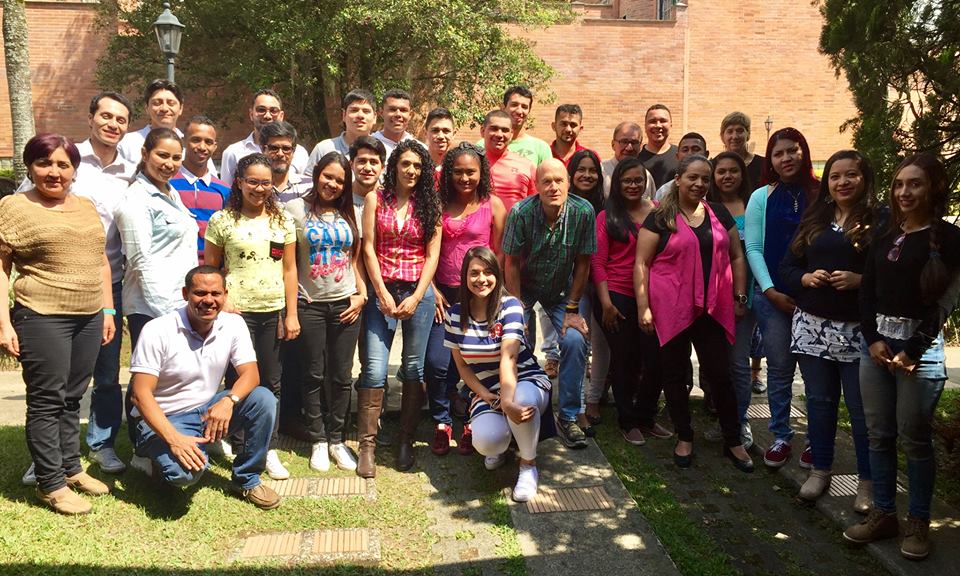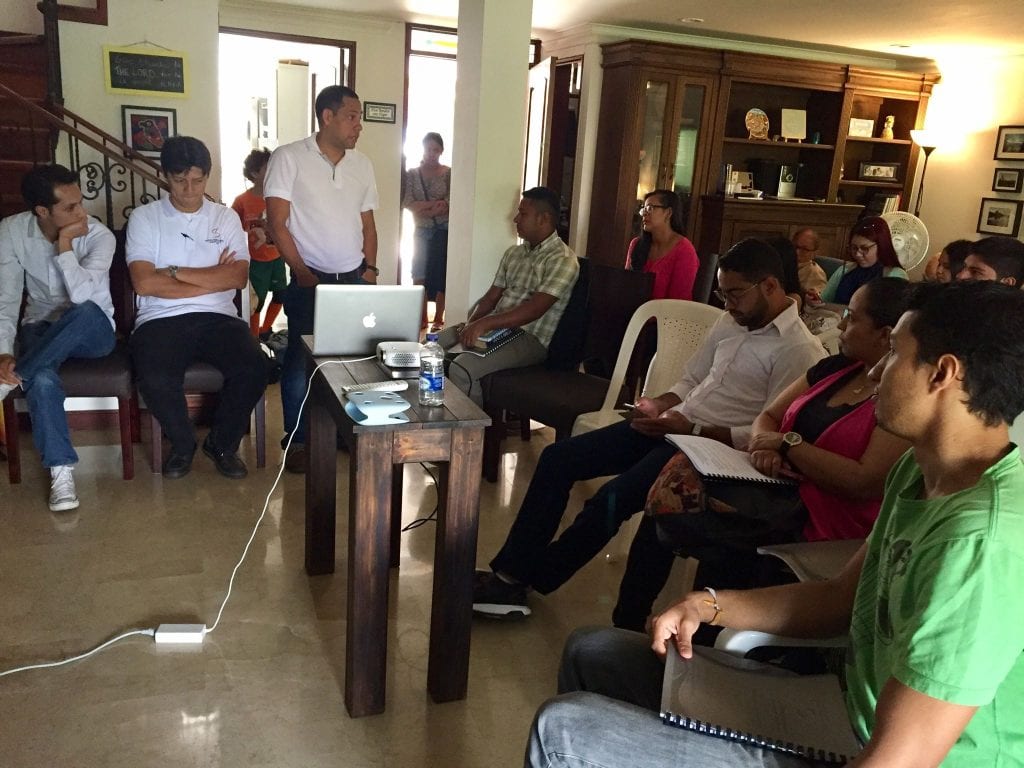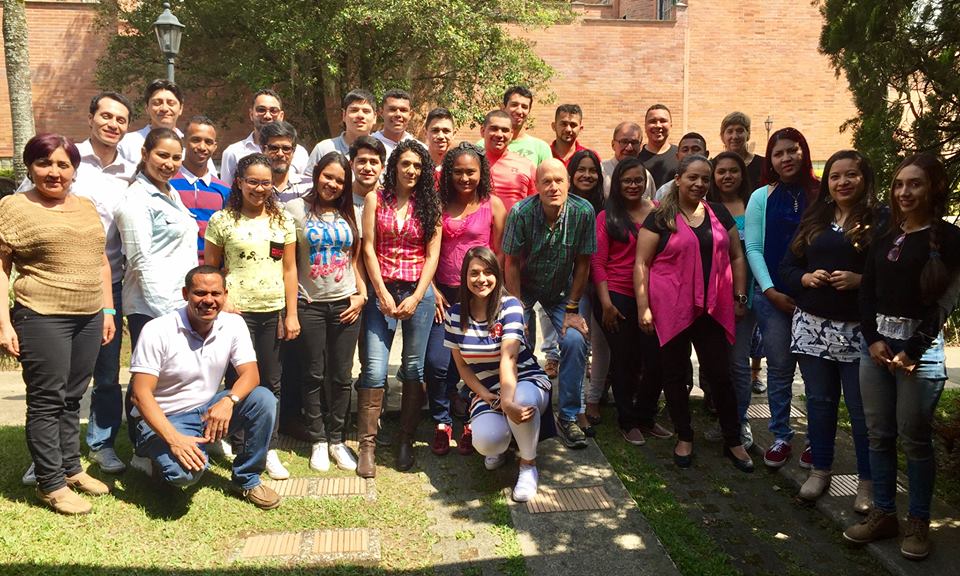
By Katie Isaza
Editor’s note: Katie and Julio Isaza are ECC missionaries serving in Colombia
MEDELLIN, COLOMBIA (March, 2017)—On Saturday, February 18, 2017, more than two dozen people gathered here to begin learning practical ways to be agents of peace and reconciliation in this country that has suffered internal fighting for generations.
In partnership with the Covenant National Youth Organization, young adults, pastors, and missionaries are participating in the certificate course “Agents of Peace and Reconciliation: a Christian Commitment” offered by the Biblical Seminary of Colombia (FUSBC) located in Medellín.
For the past 60 years Colombia has been immersed in a number of armed conflicts with entities ranging from guerrilla to paramilitary groups, to narcotics dealers and criminal gangs. Each group emerged for different reasons, but the result of every conflict has been death, desolation, and much pain for the Colombian society. More than six million people have been internally displaced as a result.
The Colombian government has initiated several peace processes. During the past five years, peace dialogues have taken place with the oldest of the guerrilla groups, and a peace accord was reached in 2016. Dialogues were initiated with another guerrilla group this year.
Participants in the peace course came from large cities such as Bogota and Medellín and small rural towns such as El Bagre, where Julio grew up. He witnessed first-hand the toll of armed conflict, and he says that helping to shepherd this process is a dream come true.
 Throughout the year participants will develop local initiatives, based on the particular needs and resources of their context. The fundamental objective is to equip local churches to be agents of peace in their communities, offering safe spaces for both victims and perpetrators to rebuild their lives and experience reconciliation. Ultimately we hope this will promote a national initiative.
Throughout the year participants will develop local initiatives, based on the particular needs and resources of their context. The fundamental objective is to equip local churches to be agents of peace in their communities, offering safe spaces for both victims and perpetrators to rebuild their lives and experience reconciliation. Ultimately we hope this will promote a national initiative.
John Paul Lederach, a professor at the University of Notre Dame KROC Institute of Peace Studies, states that the cost of attaining sustainable and lasting peace is double what was invested in war. “Looking at it in this way seems a bit daunting and discouraging,” Julio says. “It means that only our grandchildren will be the ones to experience this peace. Still, if we do not begin to invest in peace today, not even our grandchildren will experience it.”
He adds, “It is for this reason—and because we have experienced up close the horrors of armed violence in the Colombian countryside and cities for several decades, as well as our commitment to a gospel of peace and reconciliation—that we are convinced of the necessity to invest ourselves in processes of peace and reconciliation.”
Covenant World Relief funded scholarships for young adults to participate in the course.
Participants learned about the history of violence and conflict in Colombia. Diana, who is from Medellín and works in urban planning and development, shared, “This weekend challenged me to be an agent of transformation and peace, contributing from my own professional context.”
Another participant, Maria Eugenia who is from Bogota, said, “This weekend I learned that we need to be willing to forgive those who have taken up arms and perpetrated violence. This is not easy, but it is the way set before us by Christ.”
The course is made up of five modules and will run through October 2017. Participants will learn about the theological and biblical basis of peace, the role of church in advocacy and speaking out against corruption, and bringing about restorative justice.














